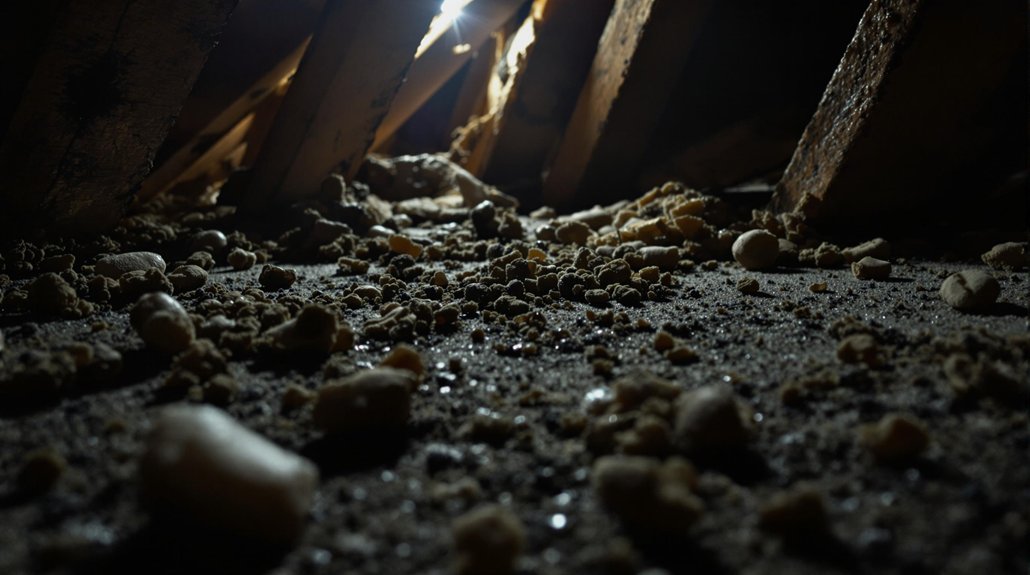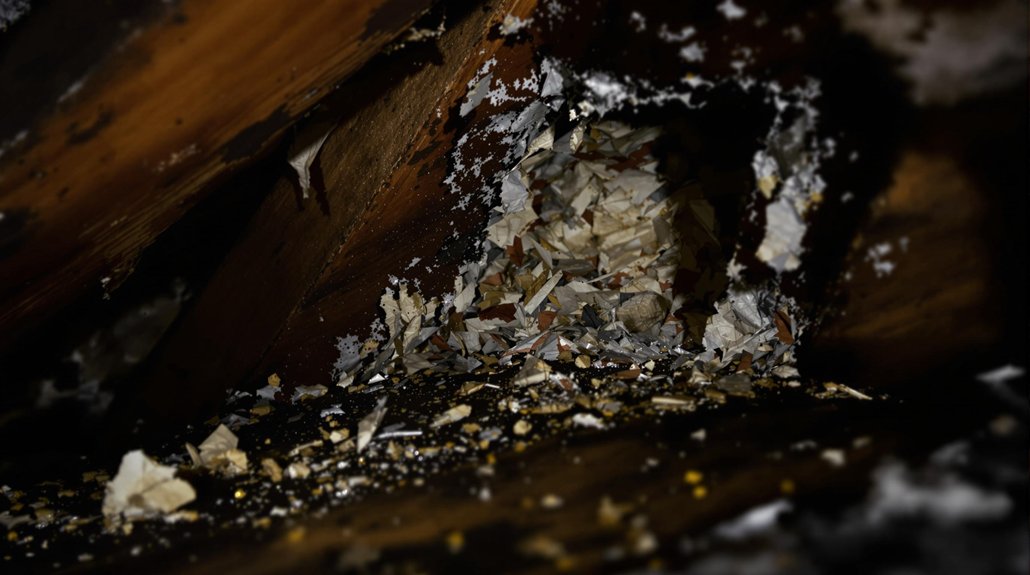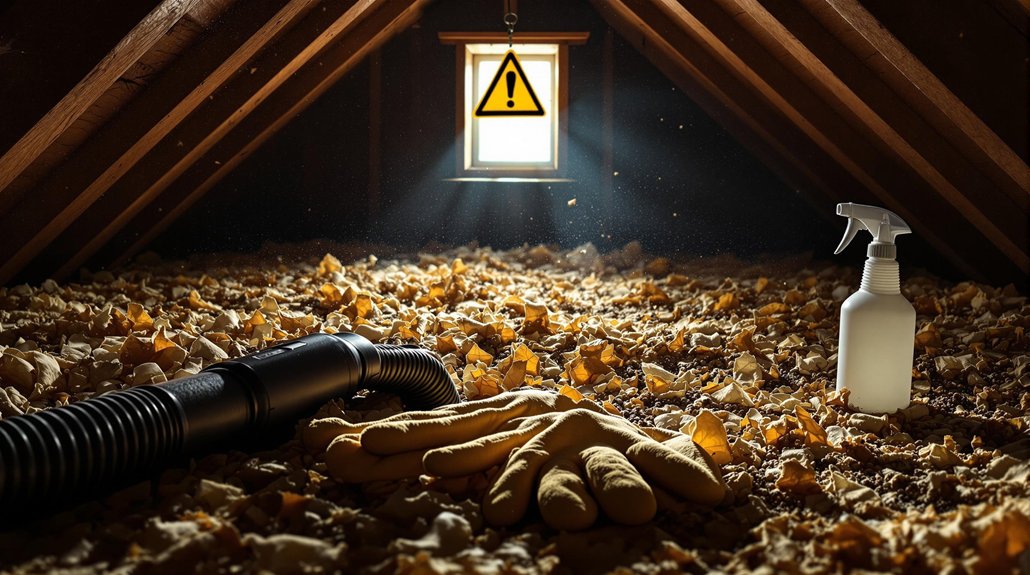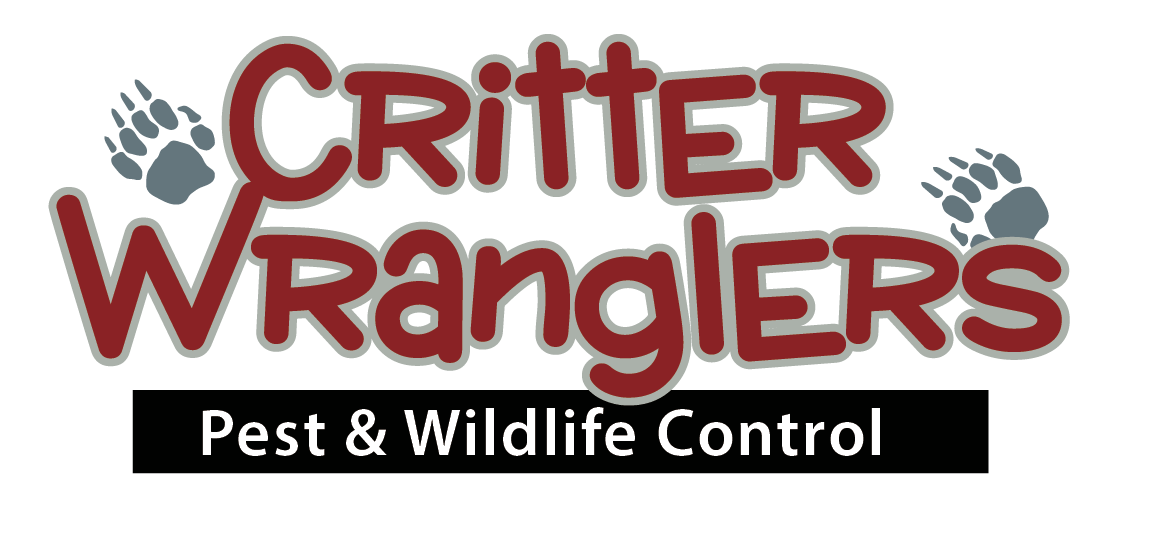Wildlife, Rodent, & Pest Control Services
Have an issue? Contact us today

Can Rodents in Your Attic Make You Sick?
Yes, rodents in your attic can make you sick. They often carry diseases like Hantavirus, Leptospirosis, and Salmonellosis, which can be transmitted through their droppings, urine, and saliva. The close proximity to your living space increases the risk of disease. Signs of an infestation include droppings, chewed materials, and unusual noises. To protect your health, prompt removal and cleaning are critical. Use proper precautions like gloves and masks during cleanup. Keeping your attic clear and sealing entry points can help prevent these pests. Discovering more about effective management strategies can further enhance your home's safety.
Key Article Highlights
- Rodents can transmit diseases like Hantavirus and Leptospirosis through droppings, urine, and saliva found in attics.
- Contaminated food and surfaces from rodent droppings can lead to Salmonellosis, an intestinal infection.
- The presence of rodent droppings indicates proximity to nesting areas, increasing health risks.
- Unusual noises and musty odors in attics may signal rodent infestations that can compromise air quality.
- Regular inspections and prompt cleanup are essential to prevent health hazards associated with rodent infestations.
Health Risks of Rodents

Although many people view rodents as harmless creatures, their presence in attics can pose significant health risks. Understanding rodent behavior is key to recognizing these dangers. Rodents often seek shelter in attics, where they can breed and thrive. This close proximity to humans increases the risk of disease transmission. Rodents can contaminate food and surfaces with their droppings, urine, and saliva, which may carry harmful pathogens. Their natural instinct to gnaw can also lead to structural damage, creating entry points for other pests. Regular inspections and prompt removal of rodents can help protect your home and health. It is crucial to address rodent infestations swiftly to guarantee a safe living environment for all members of the household.
Common Diseases Carried by Rodents
Rodents are known carriers of various diseases that can severely impact human health. These creatures can transmit rodent borne illnesses and zoonotic diseases, which can be harmful to people. Awareness of these common diseases is essential for prevention and protection.
- Hantavirus Pulmonary Syndrome: A severe respiratory disease transmitted through contact with rodent droppings or urine.
- Leptospirosis: A bacterial infection that can occur through contact with water contaminated by rodent urine, leading to serious health issues.
- Salmonellosis: An intestinal infection caused by bacteria from contaminated food or surfaces, often linked to rodent activity.
Understanding these risks helps in taking necessary precautions to maintain a healthy living environment.
Signs of Rodent Infestation

How can you tell if your attic has been invaded by rodents? Observing certain signs can help you identify rodent behavior linked to an infestation. Look for droppings, which are small, dark pellets often found near food sources or nesting areas. Chewed wires, insulation, or wood are also strong infestation indicators, as rodents gnaw to keep their teeth from growing too long. Additionally, listen for unusual noises, such as scratching or scurrying, especially at night. You may also notice a musty odor, which can result from urine and droppings. If you see these signs, it's crucial to act promptly to protect your home and health from the potential risks associated with a rodent infestation.
Cleaning and Safety Precautions
When addressing a rodent infestation, safety should be a top priority. Wearing proper protective gear is essential to prevent exposure to harmful contaminants. Additionally, using safe cleanup techniques and disposing of waste correctly will help guarantee a clean and secure environment.
Proper Protective Gear
Before beginning any cleaning or removal process in areas infested by rodents, it is essential to equip yourself with the proper protective gear to guarantee safety. Using appropriate protective clothing and safety equipment can help prevent illness and injury. Here are three essential items to take into account:
- Gloves: Durable, disposable gloves protect your hands from contaminants.
- Face Mask: A mask can help shield you from inhaling harmful particles or dust.
- Safety Goggles: Protect your eyes from debris and potential pathogens.
Safe Cleanup Techniques
Approaching the cleanup process after a rodent infestation requires careful planning and execution to guarantee safety and effectiveness. First, gather essential cleanup supplies, including gloves, masks, and disinfectant. These items help protect you during the safe removal of droppings and nesting materials. Begin by ventilating the area to reduce airborne particles. Use damp cloths to collect droppings, minimizing dust. Avoid sweeping, as this can stir up harmful particles. Place contaminated materials in sealed bags before disposal. Always wash your hands thoroughly after handling any materials. If the infestation is severe, consider enlisting professional help to guarantee a thorough and safe cleanup. Following these techniques will help create a healthier living space for you and your family.
Disposal of Contaminants
Effective disposal of contaminants is essential for ensuring a safe environment after a rodent infestation. Proper contaminant removal and waste disposal prevent health risks associated with rodent droppings and urine. Follow these guidelines for safe cleaning:
- Use Protective Gear: Always wear gloves, masks, and goggles to protect yourself from harmful pathogens.
- Seal Contaminated Waste: Place droppings and nesting materials in tightly sealed plastic bags before disposal to minimize exposure.
- Disinfect the Area: After removing contaminants, thoroughly clean and disinfect the affected area to kill any lingering bacteria.
Prevention Strategies for Homeowners

To prevent rodents from infiltrating your attic, homeowners must take proactive measures that address potential entry points and nesting sites. Regular home maintenance is essential. Start by sealing cracks, gaps, and holes. Use rodent proofing techniques such as sturdy screens and weather stripping. Additionally, keep food stored securely and avoid clutter in the attic.
| Prevention Strategy | Emotional Impact |
|---|---|
| Seal entry points | Peace of mind |
| Regular inspections | Feeling of control |
| Secure food storage | Safety for family |
When to Call a Professional
While many homeowners can manage minor rodent issues on their own, there are times when professional assistance is necessary. Recognizing when to call for help can protect your home and health. Here are three key situations to take into account:
- Persistent Infestation: If you notice ongoing signs of rodents despite your efforts, professional services can provide effective solutions.
- Health Concerns: If you find droppings or nests, it may indicate a risk of disease. Home inspections by experts guarantee safety.
- Structural Damage: Rodents can cause significant harm to your home. Professionals can assess the extent of the damage and recommend repairs.
In these situations, seeking professional assistance can provide peace of mind and effective management of rodent issues.
Frequently Asked Questions
Can Rodents Cause Damage to My Home Besides Health Risks?
Rodents can cause significant structural damage to your home by gnawing on wires and wood. Additionally, their droppings can lead to insulation contamination, compromising energy efficiency and creating potential health hazards. Prompt removal is essential.
How Can I Identify What Type of Rodent Is in My Attic?
To identify the type of rodent in your attic, utilize rodent identification techniques such as examining droppings, gnaw marks, and nesting materials. Additionally, look for signs of infestation, including noises and footprints, to narrow down possibilities.
Are There Natural Remedies to Repel Rodents From My Attic?
In the garden of home, essential oils bloom as natural guardians against unwelcome guests. Homemade repellents crafted from peppermint or eucalyptus can effectively deter rodents, promoting a peaceful sanctuary while serving the well-being of your household.
Do Rodent Droppings Smell, and How Can I Remove the Odor?
Rodent droppings can emit a strong, unpleasant odor. Effective odor removal involves thorough droppings cleanup, which includes wearing protective gear, using disinfectants, and ensuring proper ventilation. Regular maintenance helps prevent odors from returning.
Is It Safe to Use Traps if I Have Pets in My Home?
Is the safety of your pets a priority while addressing rodent issues? When using traps, guarantee trap safety by selecting pet-friendly options and implementing necessary pet precautions to minimize any potential risks to your beloved animals.
